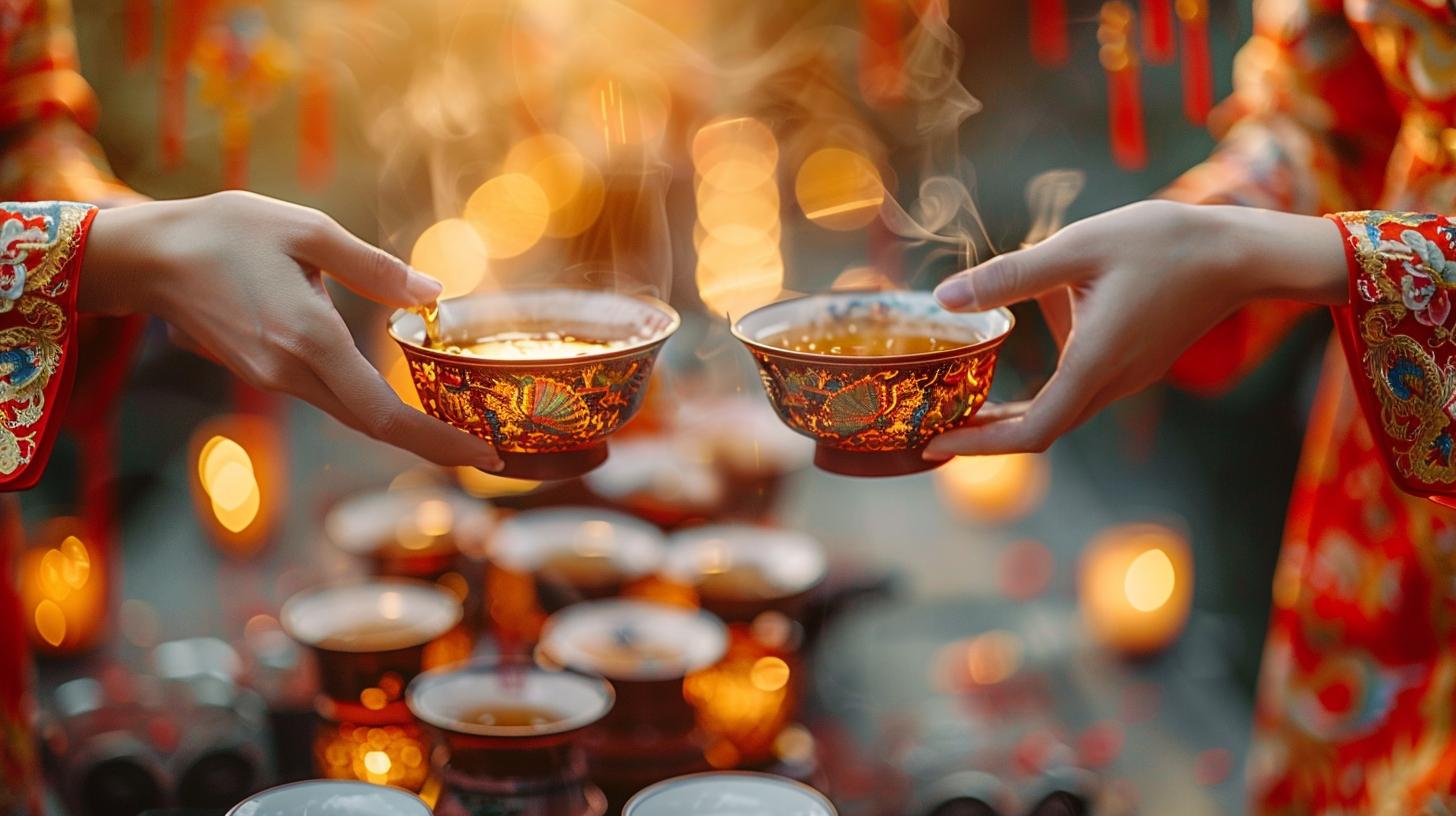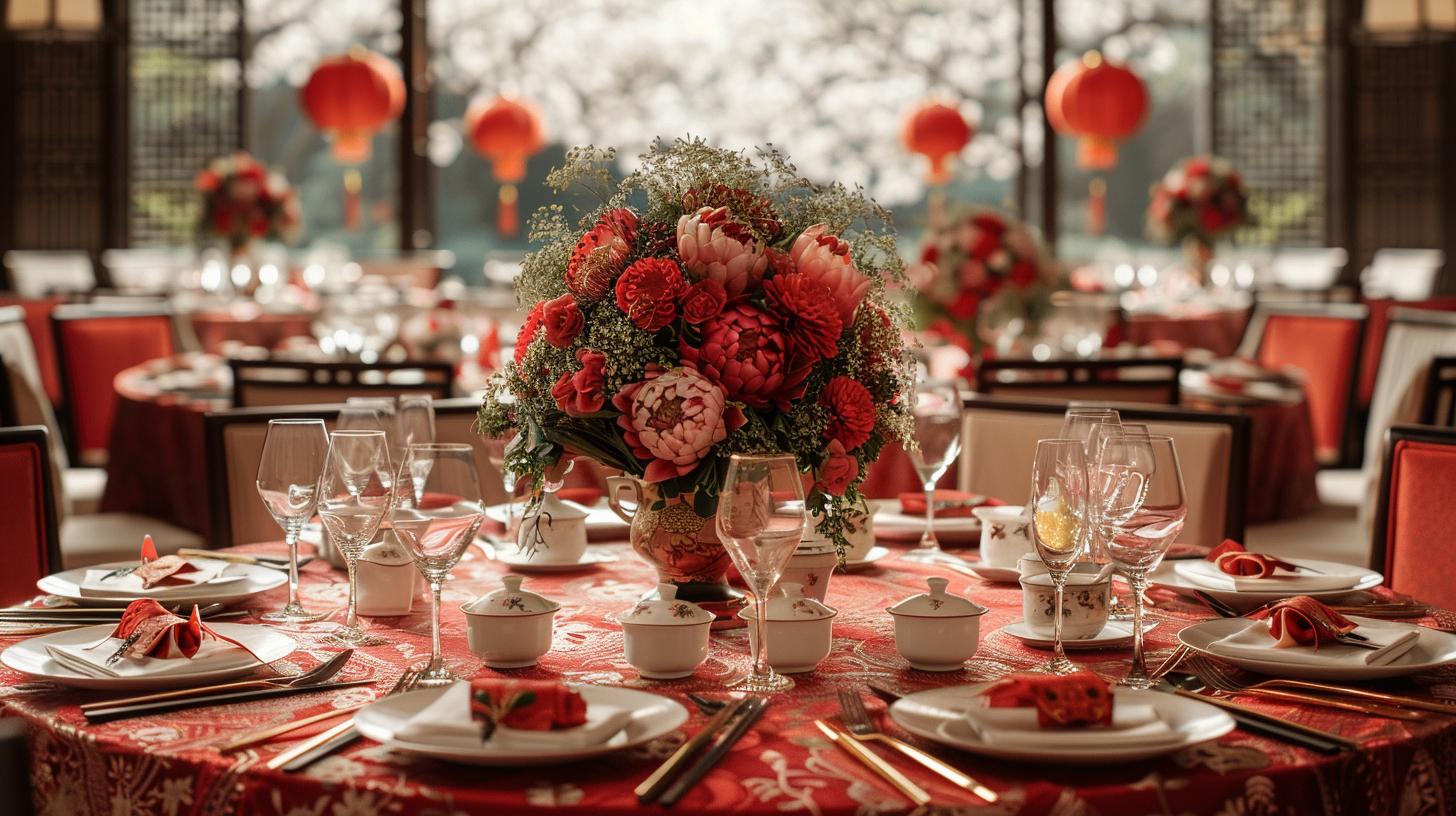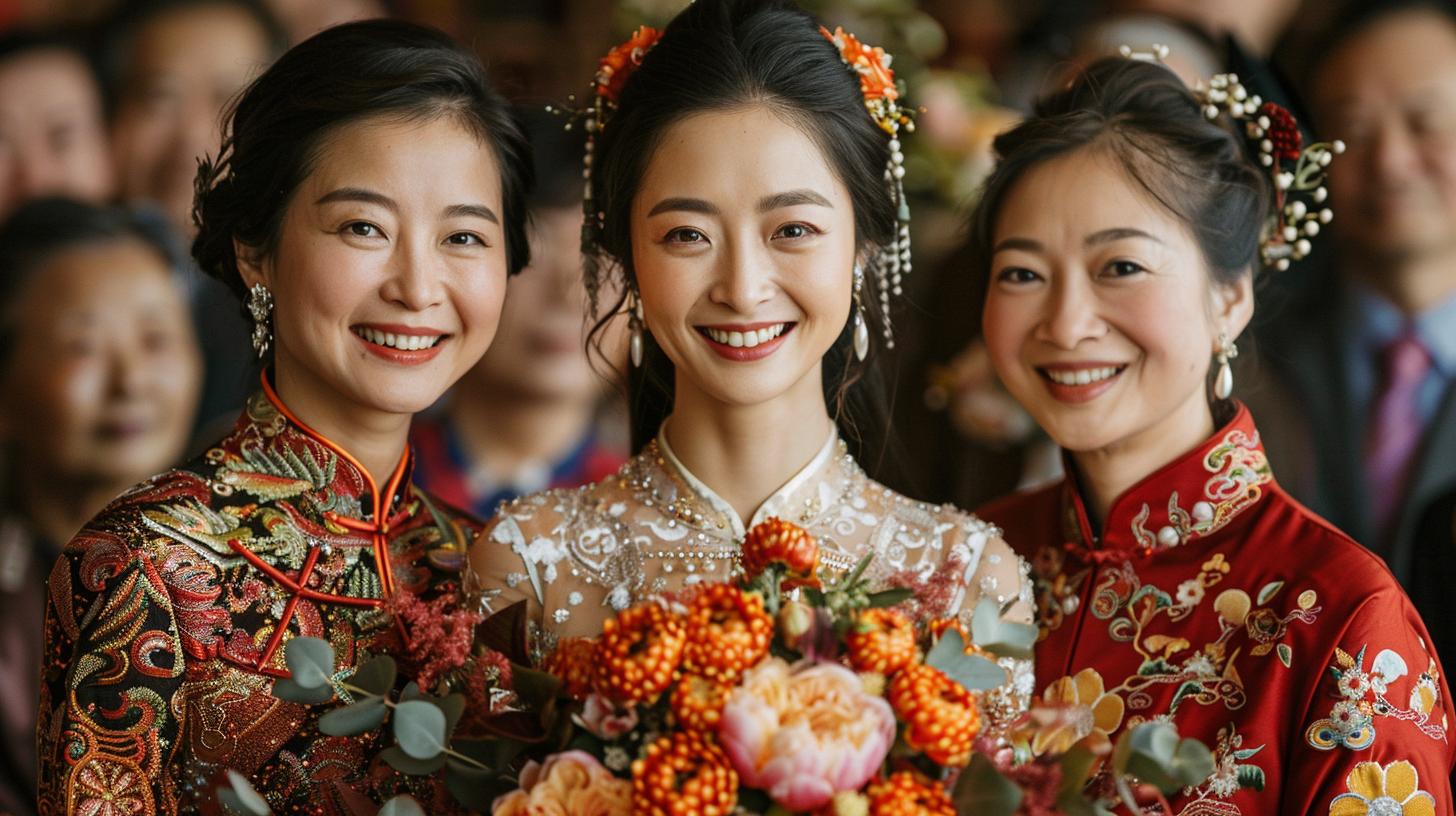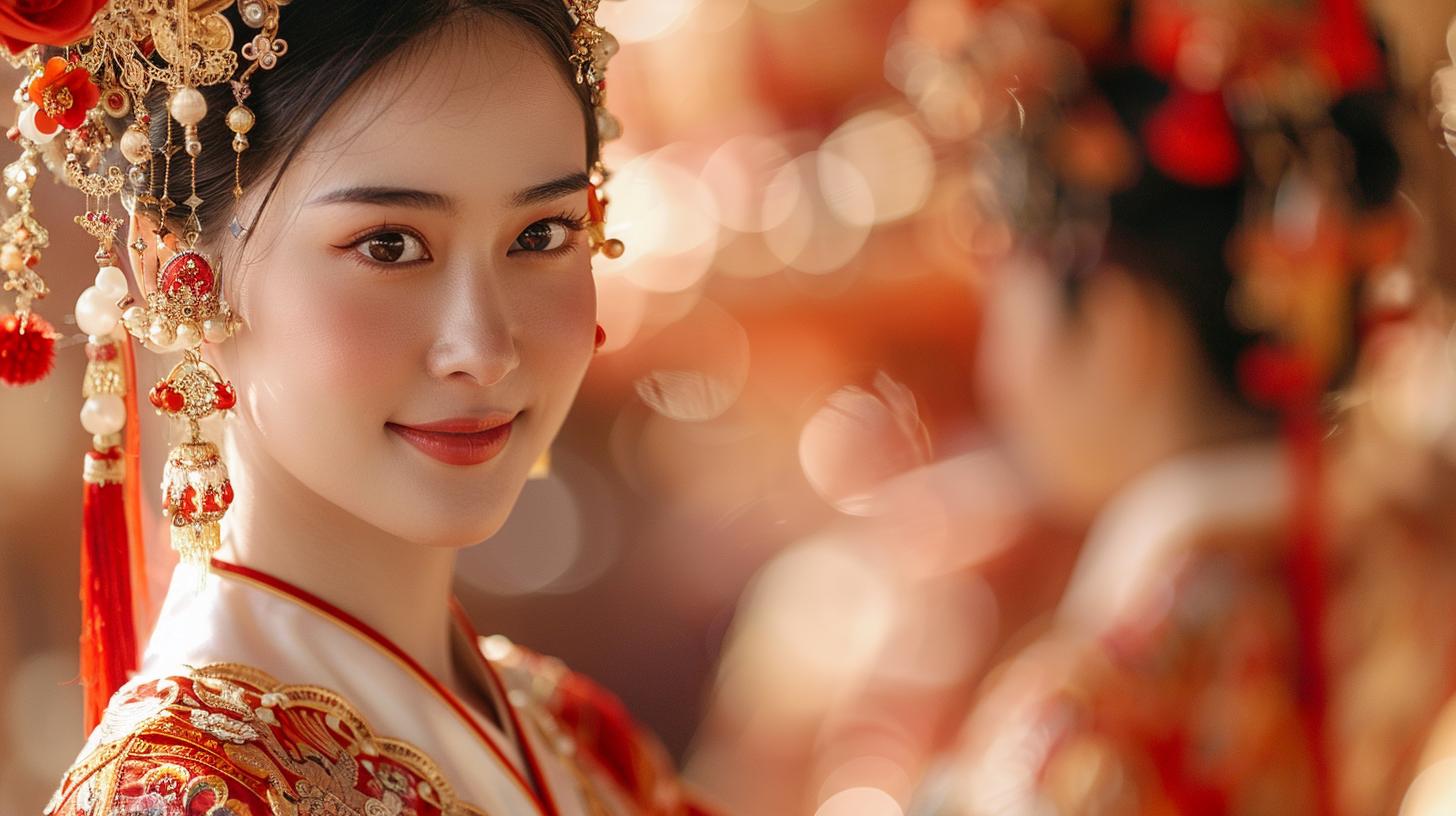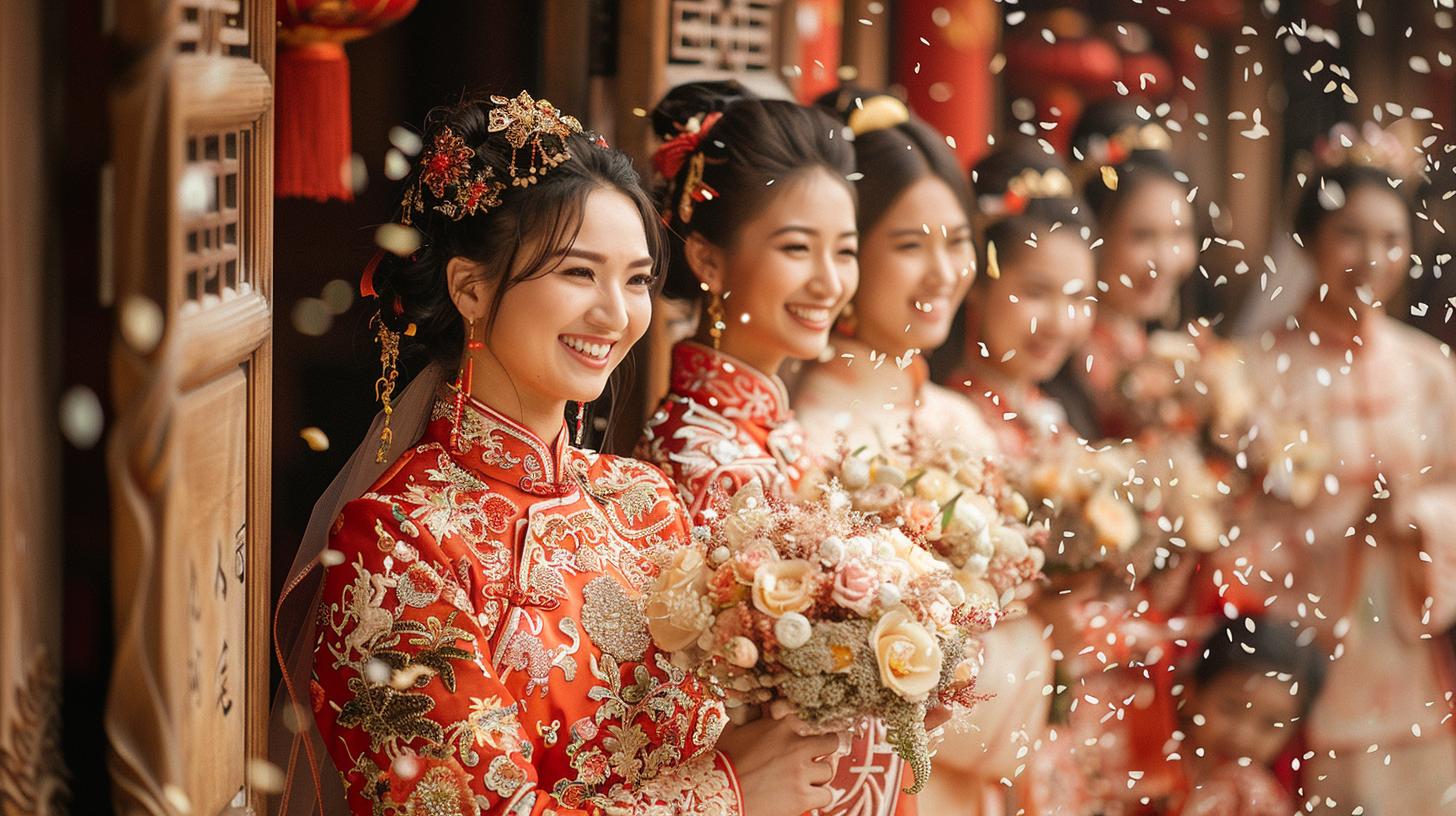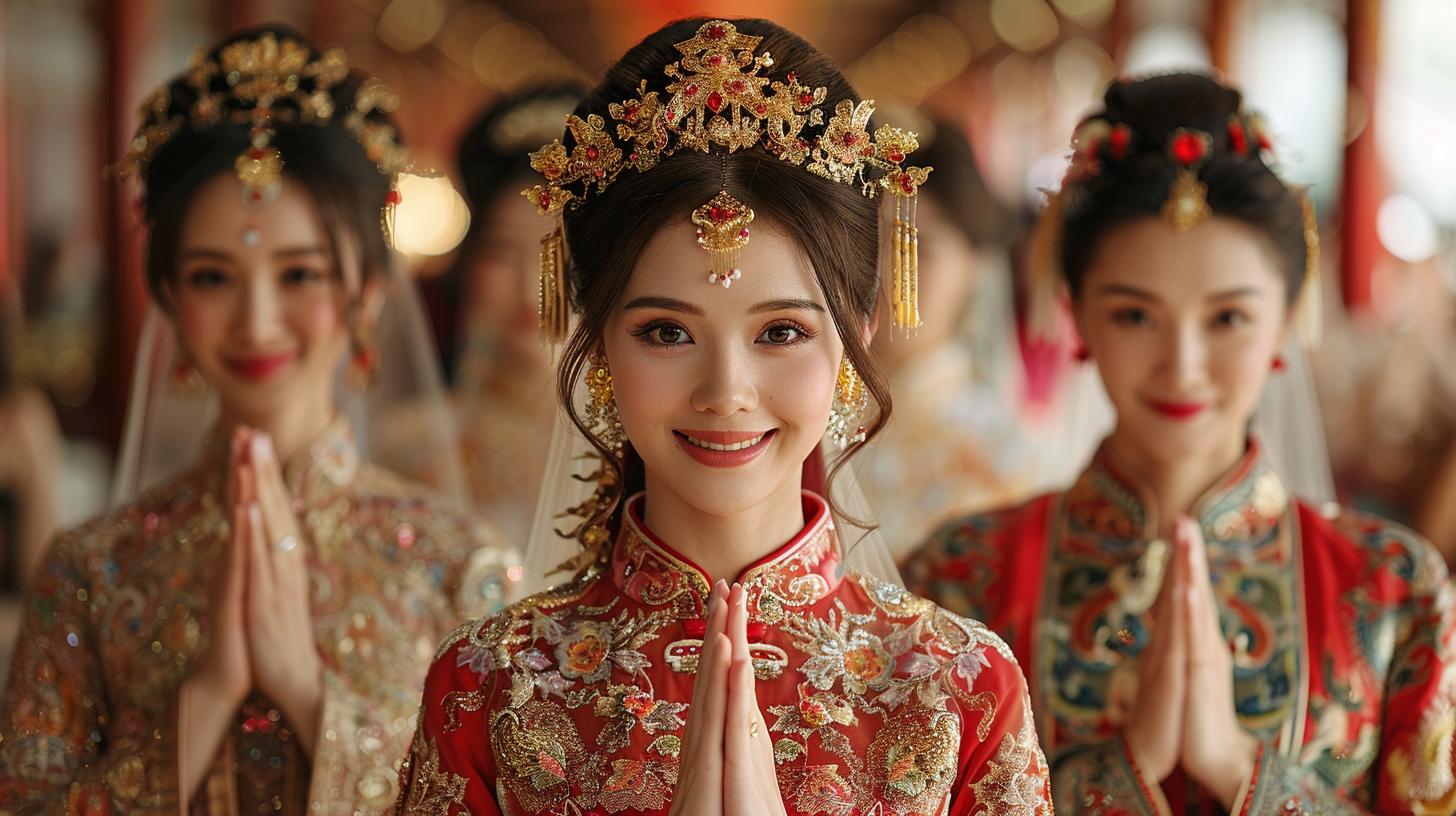What Happens At A Chinese Wedding: Traditions and Rituals Explained
Traditional Chinese weddings are filled with symbolic rituals and customs. From selecting an auspicious date to exchanging gifts and hosting luxurious banquets, each step holds special meaning. The tea ceremony, red envelopes, and incorporation of traditional and modern elements make these weddings unforgettable.
The rich culture of Chinese weddings reflects prosperity, happiness, and family traditions.
Traditional Chinese Wedding Customs
In Chinese culture, weddings are steeped in traditional customs and rituals that hold deep significance for the couple and their families.
Selection of Auspicious Date
Choosing the date for a Chinese wedding is a meticulous process, with couples consulting astrologers to find an auspicious day that will bring luck and prosperity to their union.
Formal Proposal and Exchange of Gifts
The formal proposal marks the official engagement between the bride and groom, as the groom’s family presents gifts, such as food and cakes, to the bride’s family as a symbol of their commitment.
Tying the Bridal Bed
The ritual of ‘tying the bridal bed’ involves family members decorating the marital bed with red ribbons and auspicious symbols to bless the couple with happiness, fertility, and a successful union.
Tea Ceremony and Red Envelopes
The tea ceremony is a significant tradition in Chinese weddings, symbolizing respect and gratitude. During this ritual, Tsao Chün tea is served to both families, fostering unity and harmony. The exchange of red envelopes adds a touch of prosperity and well-wishes to the occasion.
Symbolism of Tsao Chün
The Tsao Chün tea holds deep symbolic meaning, representing purity, respect, and harmony between the couple and their families. By sharing this traditional tea, the bride and groom honor their ancestors and pledge their commitment to each other.
Receiving Red Envelopes
Red envelopes, known as “hong bao,” are given to the couple by guests as a token of good luck and blessings. These envelopes contain money, symbolizing prosperity and happiness for the newlyweds as they embark on their journey together.
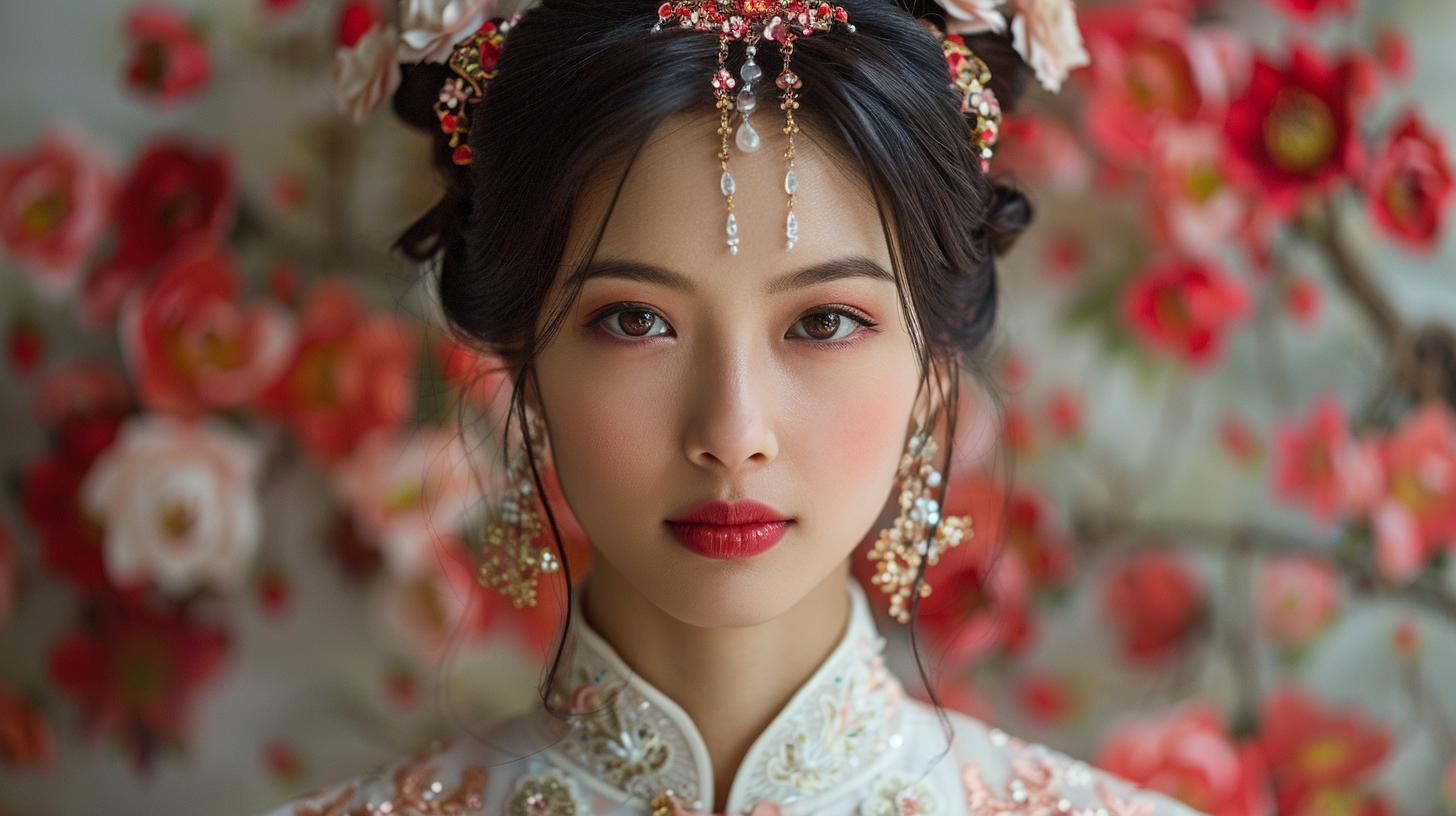
It is a customary gesture to offer these envelopes during weddings and special occasions.
Luxurious Wedding Banquet
Bridal Attire and Symbolic Foods
During the luxurious wedding banquet, the bride adorns a stunning traditional red bridal attire, symbolizing luck and happiness in Chinese culture. The groom complements her with his own stylish outfit, showcasing the harmony of their union.
- The banquet features a sumptuous selection of symbolic foods, such as a whole fish to represent abundance and prosperity in the couple’s future.
- Lotus seeds served as a sweet treat signify purity and harmony within the marriage, adding meaningful nuances to the celebratory feast.
Guest Gifts and Signings
As the guests gather to honor the newlyweds, they present gifts and leave heartfelt messages in a book or scroll, signifying their blessings and well-wishes for the couple’s future together.
- The act of signing the book or scroll adds a personal touch to the event and creates lasting memories for the bride and groom to cherish.
- Guests expressing their support through gifts and signatures highlights the communal joy surrounding the union of two families in this auspicious celebration.
Post-Wedding Traditions
Breakfast Preparation and Family Gifts
Following the wedding celebration, the bride prepares a special breakfast for both families to enjoy together.
This tradition symbolizes the beginning of a new chapter and the unity of the two families. The bride also receives thoughtful gifts from her new family members, welcoming her officially into their fold.
Visit to Bride’s Family and Roast Pig Offering
Three days after the wedding, the newlywed couple visits the bride’s family to pay respect and show gratitude. The groom presents a roast pig as a sign of appreciation and sharing a meal together signifies the bond between the two families.
This gesture shows mutual respect and gratitude for each family’s support.
Incorporating Traditional and Modern Elements
Modern Chinese weddings often blend traditional customs with contemporary elements to create a unique and memorable experience. Couples may incorporate modern music, fashion, or interactive activities alongside traditional rituals to infuse their wedding with personal style and flair.
This harmonious fusion reflects the evolving nature of Chinese culture and the couple’s individuality.
.

